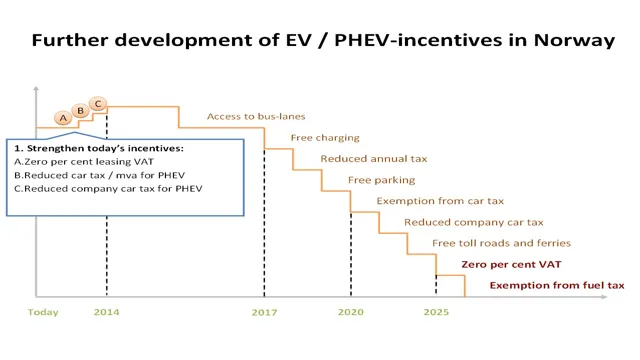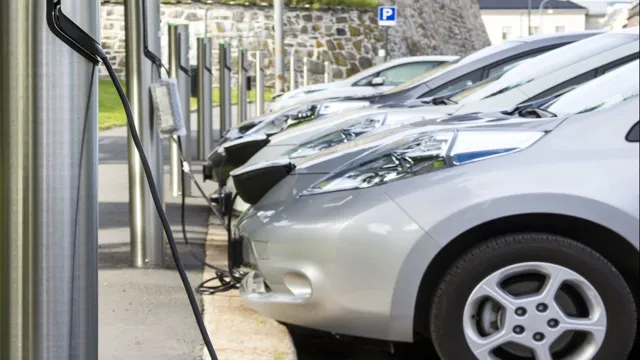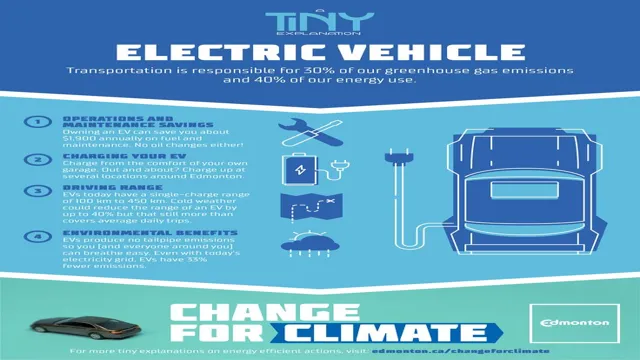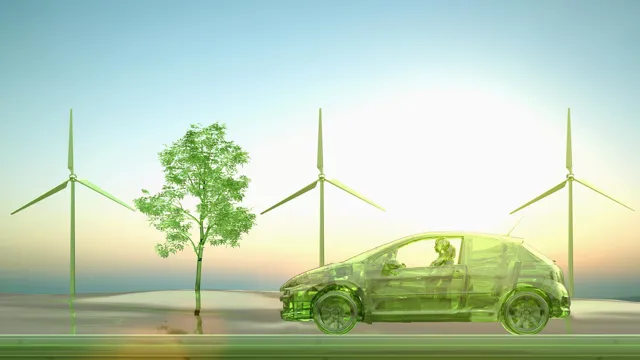The Norwegian Electric Car Revolution: Discovering the Endless Benefits of Going Green
As the world becomes increasingly more aware of the environmental impact caused by fossil fuels, electric cars are gaining more and more attention. With numerous studies revealing the link between our transport emissions and climate change, a significant shift to electric cars is essential. And when it comes to electric cars, Norway is leading the way.
In fact, Norway has been declared as the world’s most advanced market when it comes to electric cars. But why is that so? What makes electric cars so popular in Norway? In this blog, we’ll take a closer look at the benefits of electric cars in Norway and why this Scandinavian country is leading the way in the electric car revolution.
Environmental Impact
It’s no secret that Norway is leading the way when it comes to electric car adoption, with more than half of all new car registrations being electric or hybrid vehicles. The benefits of electric cars in Norway are twofold – not only do they help reduce emissions and combat climate change, but they also help to improve air quality in cities. By switching to electric cars, Norwegians are able to breathe cleaner air and reduce their exposure to harmful pollutants.
In addition to the environmental benefits, electric cars can also save drivers money in the long run, with lower maintenance costs and reduced fuel expenses. Overall, it’s clear that electric cars are a win-win for both individuals and the environment, and Norway is leading the charge in their adoption.
Reduction in Carbon Emissions
In recent years, there has been a growing concern about the increasing carbon emissions that are contributing to climate change. As a result, there has been a push towards reducing carbon emissions in order to mitigate the environmental impact. Various industries and businesses have been taking steps to reduce their carbon footprint, such as investing in renewable energy, using more sustainable practices in production, and implementing energy-efficient technology.
These efforts have resulted in a significant reduction in carbon emissions and have contributed to a cleaner and healthier environment. However, there is still much more that needs to be done in order to curb the negative effects of climate change. By committing to sustainable practices and making conscious decisions as consumers, we can continue to reduce our carbon emissions and have a positive impact on our planet.

Decrease in Air Pollution
Air pollution is a significant problem worldwide, and it has adverse effects on our health, environment, and climate. However, the COVID-19 pandemic has caused people to change their daily habits and reduce air pollution levels. Due to the lockdown period, there were fewer cars on the roads, industries were shut down, and fewer flights were taking place.
These changes have significantly reduced the release of pollutants into the atmosphere, and we can already see the results. With the reduction in air pollution, we are seeing significant changes in our environment. From clearer skies to reduced health issues, the decrease in air pollution is having a positive impact on our world.
We can all play our part in keeping the skies clean by using public transport or cycling, switching to clean energy, or working from home if possible. Let’s take it as an opportunity to turn our attention towards sustainable and eco-friendly practices in our everyday lives. By doing so, we can reduce air pollution levels, creating a better future for our planet, and for ourselves.
Financial Benefits
One of the biggest financial benefits of owning an electric car in Norway is the tax incentives. The government provides a substantial reduction in taxes for electric car purchases, making them much more affordable than traditional gasoline-powered vehicles. Additionally, electric cars are exempt from registration fees, tolls, and parking fees in many locations throughout Norway.
This can save electric car owners thousands of kroner over the lifetime of their vehicle. Another financial advantage is the lower overall operating costs of an electric car. Since electricity is cheaper than gasoline, you’ll spend less on fuel, maintenance, and repairs for an electric car.
Overall, the financial benefits of owning an electric car in Norway are hard to ignore and make them an attractive option for those in the market for a new vehicle.
Tax Incentives
Tax incentives are a great way to save money and reduce your tax burden. These financial benefits can come in many different forms, including credits, deductions, and exemptions. They are designed to encourage individuals and businesses to invest in certain industries or activities that benefit the economy as a whole.
For example, you may be eligible for a tax credit if you install energy-saving equipment in your home, or if you donate money to a qualifying charitable organization. Additionally, businesses can take advantage of tax incentives by investing in research and development, hiring individuals from targeted groups, and more. By utilizing these tax incentives, you can ultimately keep more of your hard-earned money.
Overall, tax incentives are an important tool to help individuals and businesses save money and invest in our economy.
Reduced Fuel Costs
Reduced fuel costs can bring significant financial benefits, whether you are a business owner, homeowner, or driver. With the sharp increase in fuel prices, reducing your fuel consumption can help you conserve your resources and enjoy significant savings in the process. There are many ways to reduce your fuel costs, including regular vehicle maintenance, driving within the speed limit, minimizing idling, and using efficient transportation modes like public transport or carpooling.
Additionally, using fuel-efficient cars, hybrids, or electric vehicles can significantly reduce your fuel expenses over the long term. Apart from these financial benefits, reduced fuel costs also have many environmental benefits, such as reducing carbon emissions and air pollution. Therefore, by reducing your fuel consumption, you not only enjoy financial benefits but also play your part in protecting the environment and mitigating the effects of climate change.
Lower Maintenance Costs
When it comes to owning a car, one of the biggest expenses can be maintenance costs. However, electric cars have proven to be more cost-effective in this regard. Unlike traditional cars, electric cars have fewer moving parts, eliminating the need for regular oil changes, less frequent brake-pad replacements, and fewer issues with exhaust and emissions systems.
As such, electric cars can save their owners thousands of dollars on maintenance costs over their lifetime. Plus, with fewer parts that can break down, electric cars also tend to have lower repair costs, which can make owning one more affordable in the long term. So, not only are electric cars better for the environment and more sustainable, but they can also offer significant financial benefits to their owners.
Social Advantages
Electric car benefits in Norway are not limited to just environmental advantages. There are also social advantages that come with driving an electric car. Firstly, electric cars produce far less noise than traditional cars, making for a much quieter and more comfortable driving experience.
This is especially important in urban areas where traffic noise can be overwhelming. Additionally, electric cars produce zero emissions, which means they do not contribute to air pollution. This is beneficial for everyone’s health, as air pollution can contribute to respiratory issues and other health problems.
Another social advantage is that electric cars can save drivers money in the long run. With Norway’s heavily subsidized electric car market, drivers can receive financial incentives to switch to an electric vehicle, such as reduced toll fees and access to bus lanes. Overall, the social benefits of electric cars in Norway are clear, making them not only environmentally friendly but also a practical and enjoyable mode of transportation.
Improved Public Health
Improved public health is a vital aspect of human life and societal progress. Health is wealth, and without it, communities cannot thrive. Therefore, social advantages are crucial to achieving better public health.
Firstly, when individuals lead healthier lives, they become more productive and economically active, which contributes to the growth of the overall economy. Moreover, a healthy workforce means fewer sick days, which leads to lower healthcare costs for employers and employees alike. Secondly, healthier individuals reduce the burden on healthcare systems and resources.
When fewer people need medical attention or hospitalization, health professionals can focus on the quality of care rather than the quantity. Finally, social advantages also include the creation of a more inclusive society. When individuals have access to healthcare and public health services, regardless of race, gender, or income, it promotes equality, social justice, and a sense of community.
In summary, social advantages are crucial to achieving and maintaining better public health, which is necessary for the progress of societies.
Less Noise Pollution
One of the social advantages of reducing noise pollution is that it creates a more peaceful environment for everyone. When we are bombarded with constant noise, it can be difficult to concentrate, relax, or even communicate with each other. By reducing noise levels in our communities, we can improve our quality of life.
Additionally, lower noise levels can help reduce stress and anxiety, which can have a positive impact on our physical and mental health. For example, imagine being able to enjoy a peaceful evening on your front porch without being disturbed by loud vehicles or construction noise. It’s like having a breath of fresh air! By actively working to reduce noise pollution, we can create a more harmonious community that benefits everyone.
Future Outlook
The benefits of electric cars in Norway are immense, and the future outlook for this industry is promising. As more people become aware of the harmful effects of traditional gasoline-powered vehicles, the demand for electric cars is increasing rapidly. Norway, in particular, has made significant strides in promoting these eco-friendly vehicles.
Incentives such as discounted taxes and tolls, free charging stations, and access to bus lanes have made electric cars an attractive option for many Norwegians. As a result, electric cars make up more than half of all new car sales in Norway. This trend is expected to continue in the future, with more countries around the world following in Norway’s footsteps and implementing similar incentives to promote the use of electric cars.
The benefits of switching to electric cars are not only lower carbon emissions and cleaner air, but also cheaper maintenance and fuel costs in the long run. It’s clear that the future of the automotive industry lies with electric cars, and Norway is leading the way in this green revolution.
Conclusion
Norway has recognized the many benefits of electric cars and has proven that sustainable transportation can be the norm. The country’s widespread use of electric vehicles has decreased emissions, improved air quality, and reduced dependency on fossil fuels. With incentives and infrastructure in place, Norwegians are driving towards a cleaner future.
As they say in Norwegian, “Lykke til på veien!” or “Good luck on the road!”
FAQs
What are the benefits of electric cars in Norway?
Norway offers numerous incentives and benefits for electric car owners, such as exemptions from purchase taxes, reduced annual road taxes, free public charging, and access to bus lanes.
How popular are electric cars in Norway?
Norway has the highest per capita number of electric cars in the world, with more than a third of new car sales being electric in 2020.
How does Norway’s government promote the use of electric cars?
The Norwegian government has set a target for all new cars sold to be zero-emission by 2025 and has invested heavily in building public charging infrastructure.
What environmental benefits do electric cars offer in Norway?
Electric cars produce significantly fewer greenhouse gas emissions and air pollutants than gasoline or diesel cars, helping Norway reduce its carbon footprint and improve air quality in urban areas.







